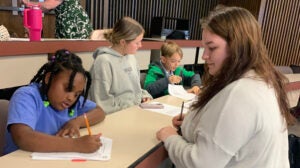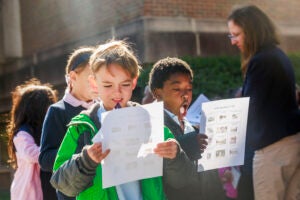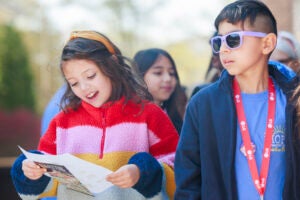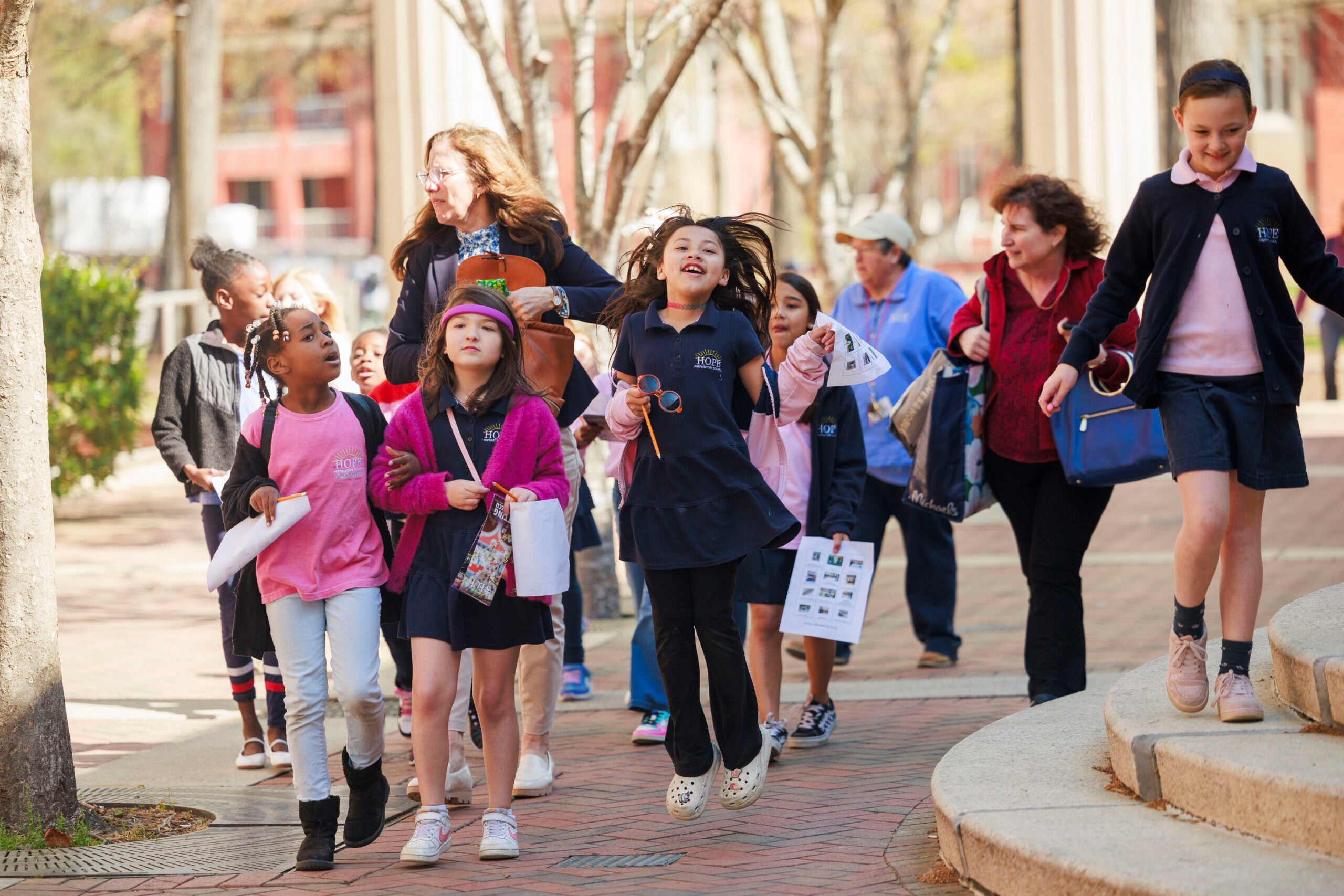Hope Preparatory School 2nd Graders Visit English Class
Nineteen second graders and four teachers from Hope Preparatory School, in Kinston, visited ECU on March 20 to collaborate on influence poems with students in Dr. Laureen Tedesco’s Literature for Children class.

Elementary students and ECU students worked together in discussion groups to share their poems. (Photo by Katie Walston)
Tedesco, associate professor in the Department of English, and Hope Preparatory School teachers, Laura Odeke and Georgia Jenkins, prepared the children for their visit by reading aloud Sharon Creech’s book, “Love That Dog,” which ECU students also had been reading. Following the lead of the fictional Miss Stretchberry, Tedesco and the teachers at Hope helped the children to write poems of their own after the manner of “The Pasture” by Robert Frost and “Home Thoughts from Abroad” by Robert Browning. The children also reflected in writing on character growth within the novel. At the same time, ECU students also wrote influence poems and reflected on Jack’s growth.
During the class visit at ECU, elementary students and ECU students worked together in discussion groups to share their poems, trade ideas about Jack’s character growth, and write an influence poem about the children’s experiences at ECU. The college students, most of whom are education majors, helped the children generate talking points for their poems, listing what they’d seen, heard, tasted, or experienced on campus.

Students participated in a scavenger hunt during their walk across campus.
While visiting ECU, the second graders participated in a scavenger hunt during their walk from the Brewster Building to the Sonic Plaza at the library, with stops at the fountain at Wright Circle, the nearby pirate statue, and the cupola. The scavenger hunt encouraged the children to find and check off these items as well as the Howell Science Complex, a rattlesnake skin in the lobby and a giant clam.
Dr. David Chalcraft, chair and professor of the Department of Biology, spoke to the children about conservation efforts for endangered species, using the stuffed red wolves and American alligator in the main lobby of Howell as visual aids. The alligator — now at about 1 million living in the wild — represents a win for the Endangered Species Act of 1967, while the red wolves represent less successful species conservation efforts, as only about 35 live outside captivity in the U.S. Chalcraft told children how to distinguish red wolves from other species.

The trip gave Hope’s students an opportunity to envision ECU as a place that would welcome them.
In the English classroom, the children recited poems they had memorized for National Poetry Week and some read the poems they had written at school in response to the poems included in “Love That Dog,” or supplied by their teachers.
Tedesco said the trip gave Hope’s students an opportunity to envision ECU as a place that would welcome them and display their literacy skills to an audience of future teachers. ECU students benefited from the exchange of ideas with children about a book both groups had read, and they were able to discover and nurture the children’s strengths as readers and writers.
“In children’s literature classes, we often talk about what books are appropriate for children of particular grade levels or consider what children might like or find difficult,” Tedesco said. “The Hope second-graders helped our classroom community put real faces to the child audience we might have imagined for ‘Love That Dog’ and similar books.”

Hope Preparatory School is a public charter school that offers a Christian classical education.
